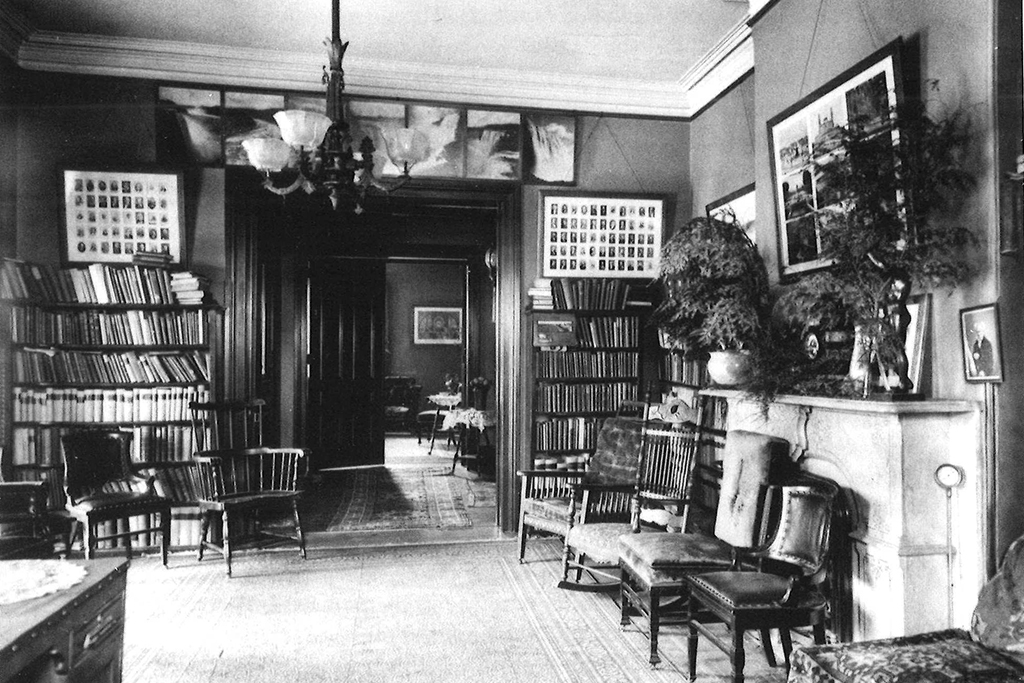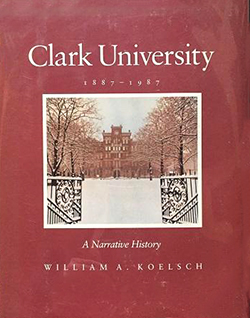Clarkives
G. Stanley Hall’s Monday evening seminar

Every Monday evening, G. Stanley Hall welcomed students and faculty into his home for hours of intellectual discussion and fiery debate. Learn more in this excerpt from William Koelsch’s “Clark University 1987–1997: A Narrative History” (Clark University Press, 1987).

In the nearly three decades between 1892 and his retirement in 1920, Hall lectured at 11 a.m. each weekday (including Saturday lectures for teachers) in philosophy, genetic psychology, and education. He often chose as topics for his courses the newer developments in psychology, such as the psychology of religion and psychoanalysis. “His lectures,” wrote his later faculty appointee Harry Elmer Barnes, “while never clear, lucid or synthetic, were inordinately stimulating, chiefly by virtue of Hall’s intellectual courage and versatility, his mastery of current scientific literature, and the heterodox nature of most of his ideas.”Much of his lecturing was later to appear in the form of articles or of massive books. In addition to “Adolescence,” he published a controversial two-volume work on “Educational Problems” (1911), which created a stir because of its handling of children’s sexuality, and another controversial and psychoanalytically-influenced work on “Jesus the Christ in the Light of Psychology” (1917). Following his retirement he completed a pioneering exploration of “Senescence: The Last Half of Life” (1920) and his unreliable but revealing autobiography, “Life and Confessions of a Psychologist’ (1923). His lifetime bibliography runs to nearly 450 items.
Hall’s most effective teaching was done in his famous Monday evening seminar. About 7:15 p.m. each Monday, all students in philosophy, psychology and education, and perhaps also faculty and invited guests, would gather in Hall’s home across the street from the campus. Typically, two students each session would report on their own investigations or summarize the literature of a given field in a written paper. After the first, Hall would lead off the discussion and call for reactions. After thirty to sixty minutes of fiery debate, in which he might join, Hall would summarize the principal points and all would adjourn to the dining room for light refreshments. About 9:30 the second presentation would begin, and the meetings rarely broke up before midnight. Early on, the seminar was focused on specific readings, and sometimes an invited lecturer would make a presentation. But in its mature form the Monday evening seminar was the students’ time on the frontiers, and as one of them, Lewis Terman, recalled the sessions, “I always went home dazed and intoxicated, took a hot bath to quiet my nerves, then lay awake for hours rehearsing the drama and formulating all the clever things I should have said and did not.” Hall himself, in retirement, missed the seminar experience more than anything else, and felt “a peculiar lonesomeness” each Monday.


